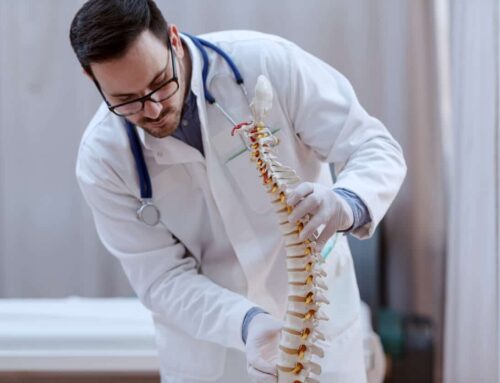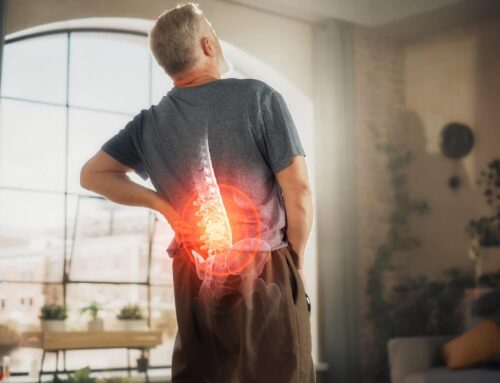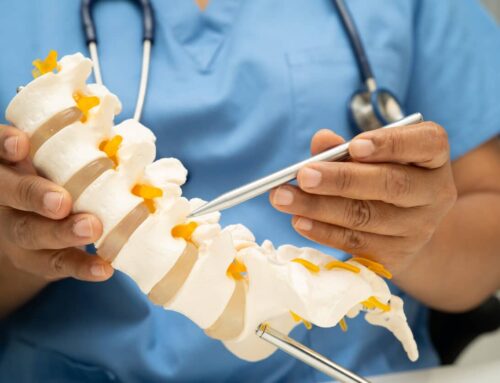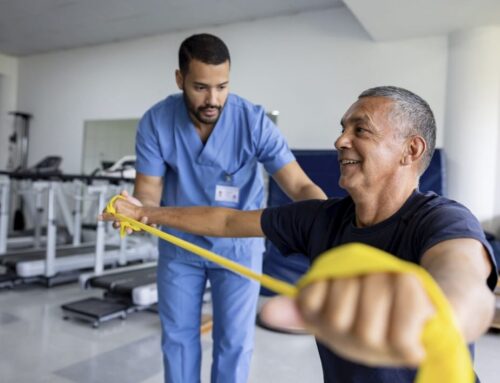Back pain is a common complaint, affecting more than 65 million Americans. Struggling with daily activities because of pain can be frustrating, especially if you don’t know if you should wait it out or see a doctor. How do you know when that nagging ache is just a temporary annoyance or when it is a sign of a serious back injury?
Cary Orthopaedics’ spine physicians understand the challenges that come with back pain. Their decades of experience in both conservative and surgical treatments have helped hundreds of patients return to life with little to no discomfort.
This article will discuss the differences between common back ailments and more serious conditions. It also addresses how back problems are diagnosed and how to treat back pain.
Common acute back pain symptoms
The back has many parts that can be tweaked or injured, including the spine, muscles, tendons, ligaments and spinal nerves. Acute pain may go away in a short time without medical treatment.
Typical short-term, acute back pain symptoms include localized pain, stiffness and muscle aches. Acute pain generally begins to feel better within 48 to 72 hours with rest, ice packs, a heating pad and anti-inflammatory medications. It may take up to a few weeks to fully heal.
Often, cases of acute back pain result from overexertion or poor posture. If the pain is suddenly brought on by an acute incident – such as a car accident or sports injury – it is smart to visit an orthopedic spine doctor right away.
There are many myths about back pain, so learning about how to take care of your back and using proper ergonomics is essential to prevent back injuries.
Symptoms of a serious back injury
Severe and/or prolonged back pain could indicate a medical emergency and the need to see a physician. Pain can sometimes be the result of an injury to the spine or muscles of the spine, but it could instead be a sign of damage to a disc or internal organ, a severe infection or a kidney stone.
When to seek emergency care
Severe back pain should be taken seriously. While not all pain requires an immediate visit to the emergency room, it is wise to see a doctor for your back pain promptly if you have sudden, significant pain.
Severe back pain or significant pain coupled with other symptoms may require urgent medical care. If you experience any of the following symptoms, you may have a serious back injury and should seek medical care immediately:
- Severe pain following trauma, like a car accident
- Sudden weakness or numbness in your legs or arms
- Back pain paired with loss of bladder or bowel control
- Back pain coupled with a severe headache and/or numbness or tingling in your arms
- Numbness or tingling in the groin or buttocks
- A fever associated with your pain
- Pain accompanied by significant swelling, redness or tenderness
- Any visible signs of physical deformity
- Any injury when you heard a popping noise
When to make an appointment
Some back pain gradually worsens over time due to arthritis, disc degeneration, spondylosis and other ailments. Other pain may begin quickly, like if a disc ruptures. An orthopadic spine specialist can help with all of these issues, especially when seen soon after the onset of pain.
If you have the following symptoms, seek help from an orthopedic spine specialist:
- New pain that lasts more than 48 hours
- Pain starting in the back and radiating or running down the buttocks or leg
- Difficulty performing activities of daily living, like getting dressed, toileting, bathing, eating or going up or down stairs
- Unexplained weight loss
- Chronic, increasing pain that requires more and more changes to your daily activities
Back pain can worsen over time, especially as people age. By treating your pain early, your doctor can address issues that may be causing pain, thereby helping to prevent future problems.
Orthopedic back doctors have extensive training and experience in relieving neck and lower back pain. With their education and expertise in the spine, muscles and tendons, orthopedic back doctors can evaluate your pain and prescribe treatments to help.
Cary Orthopaedic Spine Center usually recommends non-surgical treatment options to help relieve patients’ pain before moving to surgical interventions. Our spine care team offers compassionate, comprehensive treatment options for your care.
When to rest at home
If your back feels sore after a rigorous workout, lifting heavy items or even just sleeping oddly, it may not be a serious problem. Often, the pain goes away after 72 hours of rest and ice application.
However, if your pain becomes severe, lasts for more than a few days or shows some of the more serious symptoms, then reach out to Cary Ortho for an appointment.
How is back pain diagnosed?
When you see a specialist for back pain, your doctor will ask questions about your medical history, your overall health, when and how your back pain began, and what makes it worse. They may also ask you about your job and hobbies.
Your spine specialist will perform a physical examination to observe your spine, posture, range of motion, tenderness, reflexes, muscle strength and overall back health.
He or she may order an X-ray to see if there are any fractures, arthritis or alignment issues. You may also need an MRI to check the soft tissue in your back, including discs, tendons, ligaments and nerves. Other tests may check your nerve responses or check for inflammation or infection.
This information will help your doctor identify the cause of your back pain and the best treatment options.
The best treatments for back pain
Effective home remedies
When you have mild back pain, try the following home remedies to get relief:
- Rest from the activity that caused the pain
- Alternate heat and cold therapy
- Take anti-inflammatory medications like ibuprofen or other over-the-counter pain relievers
- Try gentle stretching
When your back pain improves, incorporate exercises to strengthen your back and core into your routine. If you are carrying extra pounds, take steps to maintain a healthy weight. These proactive steps will help prevent recurring back pain.
Conservative, non-surgical spine treatments
Cary Ortho’s spine specialists offer our patients conservative, non-invasive spine treatments first. Most back pain relief can be achieved without surgery.
Conservative back pain treatments include spine physical therapy, medications, injection therapy, electric stimulation therapy and radiofrequency ablation.
Spine surgery for back pain
Spine surgery may be the next step when home remedies and conservative efforts are unsuccessful. Cary Ortho’s board-certified spine surgeons have extensive experience in both minimally invasive spine surgery and complex spine surgery.
Our team’s success with minimally invasive surgery has decreased the need for open spine surgery by more than half. When a complex surgery is needed, our highly skilled spine surgeons deliver exceptional results.
Find a spine physician near you
When suffering from back pain, choosing a talented team with years of experience matters. Cary Orthopaedics’ spine doctors provide state-of-the-art care for a wide range of spine conditions, including neck pain and low back pain.
At the region’s only comprehensive Spine Center, our board-certified spine orthopedists provide a personal approach to your care. We focus on your needs and develop the best and least invasive plan to address your pain issue.
Contact our practice today to schedule a consultation.






